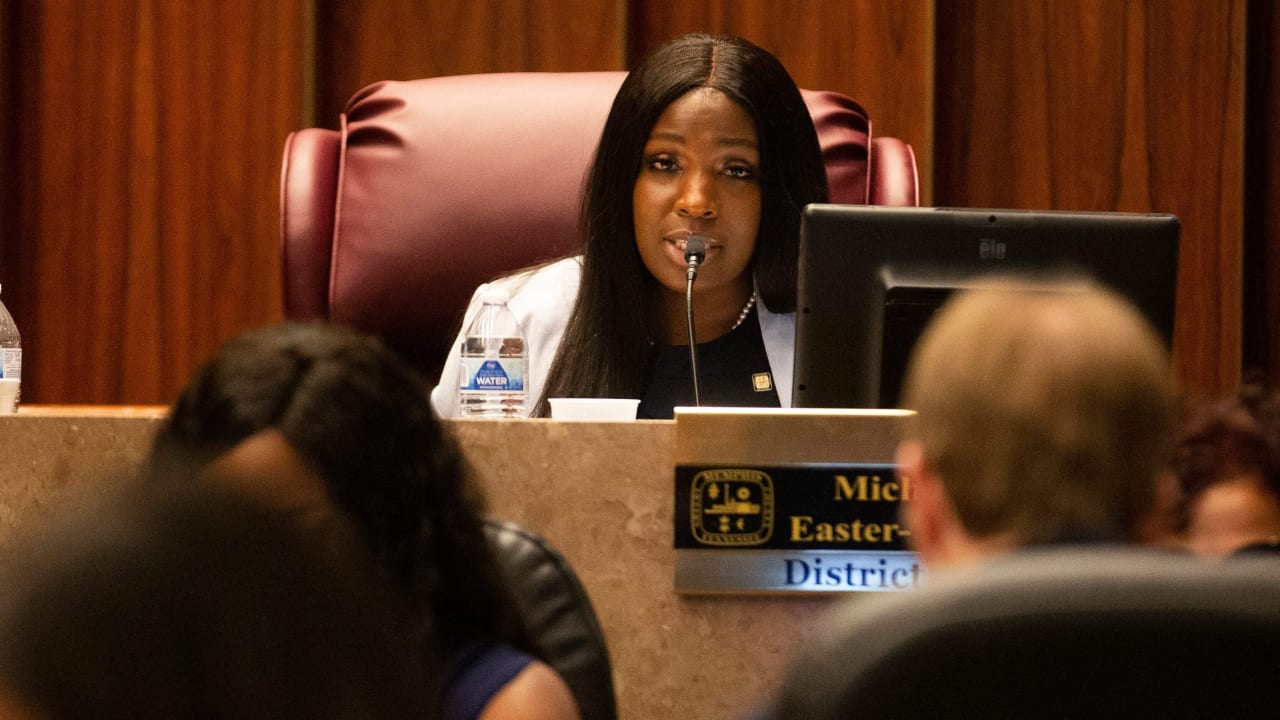We bring news that matters to your inbox, to help you stay informed and entertained.
Terms of Use and Privacy Policy Agreement
WELCOME TO THE FAMILY! Please check your email for confirmation from us.
Councilwoman Michalyn Easter-Thomas, sponsor of the “Achieving Driving Equality” ordinance, said the goal is to limit encounters between law enforcement and the general population of Memphis.
Memphis, Tennessee, is the sixth city in the nation to adopt “Achieving Driving Equality” legislation, which comes 90 days after Tyre Nichols‘ death at the hands of several Memphis police officers.
According to the Memphis Commercial Appeal, while authorities can pull over vehicles for “primary violations” and specific situations involving secondary offenses, they cannot stop a driver for a minor infraction, such as misaligned license plates or a broken brake light.
Councilwoman Michalyn Easter-Thomas, the ordinance’s sponsor, said the goal is to limit encounters between law enforcement and the general population so police may instead concentrate on major crimes rather than “poverty crimes.”
“What this ordinance is, is surrounding the idea of pretextual stops, how they aren’t helpful and how they divert resources away from our clearly intentioned needs in our community,” said Easter-Thomas, according to the Commercial Appeal, “such as dealing with crime and aiding our citizens.”
Still, state legislation supersedes local ordinances. Memphis Police Chief Cerelyn “CJ” Davis informed council members that under state law, police may pull over vehicles for secondary infractions “if there is a situation that’s an outlier.”
Secondary violations include driving a vehicle with an expired registration within 60 days of its expiration date or driving one with a temporary registration permit that is incorrectly located but visibly displayed. They also include driving a car with a visible registration plate not securely fastened, a car with a single out-of-service light — such as a brake, head or running light — or a car with loosely attached bumpers.
Tuesday’s vote was a victory for advocacy groups pushing for the ordinance’s adoption since Tyre Nichols, a 29-year-old Black man, died on Jan. 10, three days after Memphis police officers forced him from his vehicle and proceeded to tase, chase and beat him, after an alleged traffic stop.
During the city council meeting, Rosalyn Nichols of the Metropolitan Inter-Faith Association requested that the ordinance be renamed the “Tyre Nichols Driving Equality Ordinance,” a proposal that Nichols’ family backed. She contended the ordinance would reduce the danger to the public and the number of people killed by police, whose duty is to uphold the law.
“This will be the first step for healing,” said Roslyn Nichols, a MIFA interfaith officer, The Commercial Appeal reported, “that starts as we begin to move as a community beyond the darkness of January 7th as a model for our nation with Memphis leading.”
While Tyre Nichols’ family reportedly backed the recommendation, Easter-Thomas said she wanted to speak with them before adding his name.
Council Chairman Martavius Jones interrupted those still wanting to speak on the measure and ordered a vote, with 11 council members voting in favor of the ordinance. The other two members were absent.
The vote came a day after about 40 community people gathered outside City Hall to honor Tyre Nichols’ life and demand the adoption of the driving equality act, a request that the Rev. Andre E. Johnson, Gifts of Life Ministries’ senior pastor, declared wasn’t radical and shouldn’t have been so difficult to achieve.
“The justice for Tyre [Nichols] campaign has done wonderful work in bringing facts and figures and research about the atrocities of pretextual stops,” said Johnson, the Commercial Appeal reported.
“It should not be this hard to get people to understand how Black folks are treated in this city,” he said — or to do the right thing.
TheGrio is FREE on your TV via Apple TV, Amazon Fire, Roku and Android TV. Also, please download theGrio mobile apps today!

